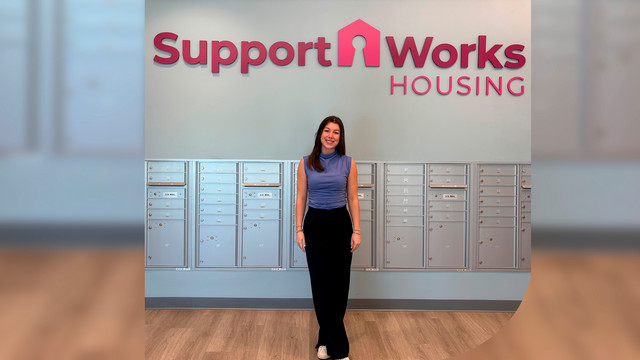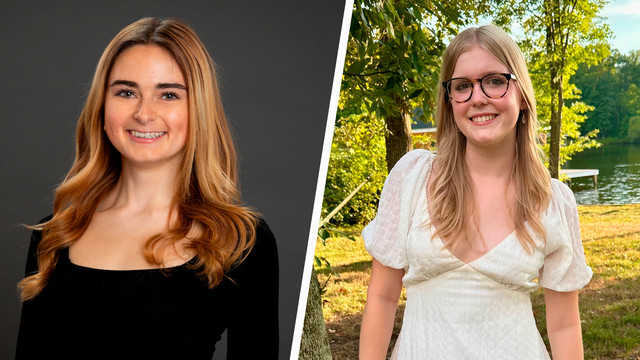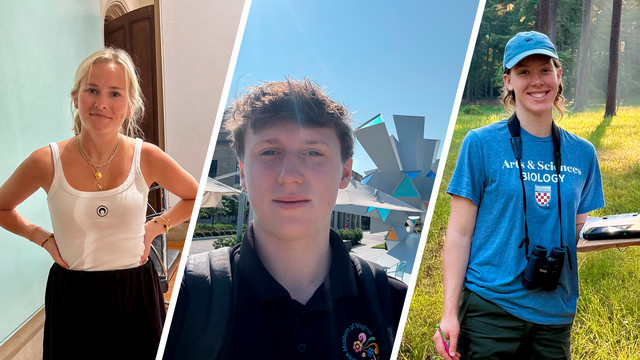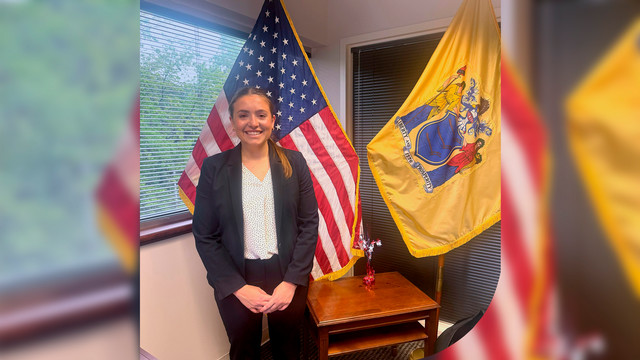
UR senior works to fight homelessness and improve health care access
Student Experience
When it came time to choose a summer internship, UR senior Charlotte Tisdale, a double major in leadership and health studies with a minor in data science and statistics, thought back to a project she completed for a course on nonprofit community health. For her project, she chose to focus on Virginia Supportive Housing (now SupportWorks Housing), an organization that provides housing and support services to people experiencing homelessness in Charlottesville, Richmond, and South Hampton Roads. The research sparked her interest in the organization’s mission.
“I had previously worked in public health and wanted to explore housing as a system-level social determinant of health,” Tisdale said.
She had already spent over a year with the Johns Hopkins hospital-affiliated nonprofit Kennedy Krieger Institute, focusing on maternal and child health, leadership education, advocacy, and research. She started as a 40-hour-per-week summer intern and then returned for professional development and conferences during the academic year.
She was particularly drawn to SupportWorks’ mission to end homelessness, seeing it as a way to deepen her understanding of how stable housing influences overall health. After talking with their team, Tisdale was hired as a health equity and mission advancement intern responsible for gathering resources for grant applications.
“One of my main responsibilities was to amplify SupportWorks health statistics for grants,” Tisdale said.
She created an internal library that will help the organization streamline grant applications and ensure greater consistency across proposals by giving staff a centralized place to access commonly needed information. Interviewing residents to learn their stories and backgrounds was a major part of this task.
Stories that showcase SupportWorks’ impact include people who are no longer sleeping in their cars or on the street, such as an injured U.S. Army veteran who had lost his home and family due to a disability and PTSD.
“It’s so important to balance the more quantitative data with the emotional aspect of what we’re doing,” Tisdale said. “I interviewed the staff members too, which was extremely eye-opening. It’s been inspiring meeting people who have such big hearts and can come to work every day with their heads held high.”
A career in community health
While Tisdale came to Richmond with an interest in public health, her exposure to nonprofit organizations, community initiatives, and social justice issues led her to become a health equity advocate. She plans to pursue a master’s in public health after graduation, tailoring her graduate experience toward global health policy and maternal and child health
Professor Julian Hayter’s Justice and Civil Society course, taken during her sophomore year, also played a part in her decision to pursue this career path. It was during his course that she first recognized the advantages of viewing health from a system-wide perspective.
At SupportWorks, she helped build partnerships with organizations that promote holistic health initiatives for Charlottesville residents. Collaborative alliances were formed with Cultivate Charlottesville, which focuses on community gardens and educating residents about the benefits of good nutrition, and the University of Virginia's medical school, which offers classes on diabetes management and overall personal health.
"We also examined various social determinants of health, including housing, which is closely linked to racial disparities, especially considering Richmond’s history of redlining,” Tisdale said. “What bothers me is that redlining maps from the 1950s or earlier almost exactly match areas today where life expectancy is much lower. That kind of lesson had a big impact on me.”
The office she worked in was part of a community apartment building and enabled Tisdale to talk with residents in the hallway or in the community garden. “Hearing their stories and backgrounds has been deeply moving,” Tisdale said. “It’s a reminder of what we’re working towards.”






